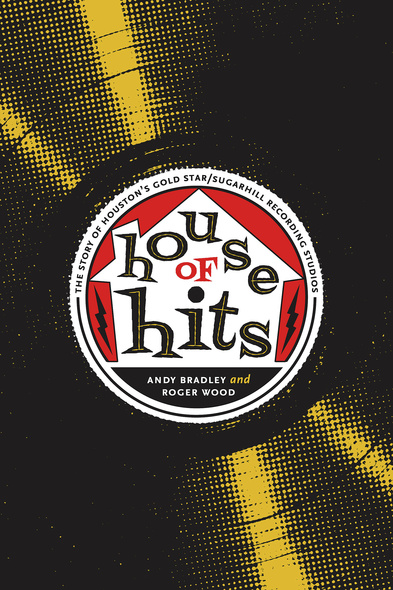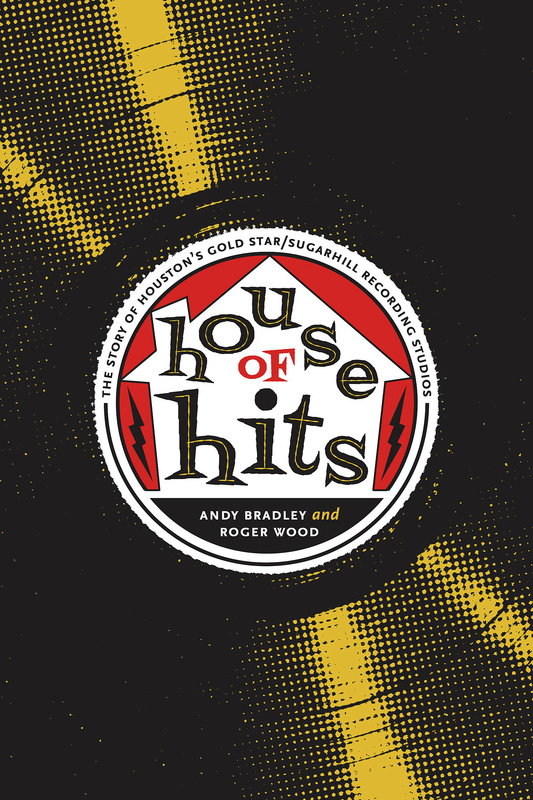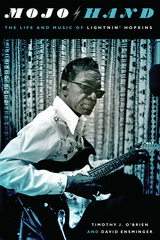House of Hits
The Story of Houston's Gold Star/SugarHill Recording Studios
Founded in a working-class neighborhood in southeast Houston in 1941, Gold Star/SugarHill Recording Studios is a major independent studio that has produced a multitude of influential hit records in an astonishingly diverse range of genres. Its roster of recorded musicians includes Lightnin' Hopkins, George Jones, Willie Nelson, Bobby "Blue" Bland, Junior Parker, Clifton Chenier, Sir Douglas Quintet, 13th Floor Elevators, Freddy Fender, Kinky Friedman, Ray Benson, Guy Clark, Lucinda Williams, Beyoncé and Destiny's Child, and many, many more.
In House of Hits, Andy Bradley and Roger Wood chronicle the fascinating history of Gold Star/SugarHill, telling a story that effectively covers the postwar popular music industry. They describe how Houston's lack of zoning ordinances allowed founder Bill Quinn's house studio to grow into a large studio complex, just as SugarHill's willingness to transcend musical boundaries transformed it into of one of the most storied recording enterprises in America. The authors offer behind-the-scenes accounts of numerous hit recordings, spiced with anecdotes from studio insiders and musicians who recorded at SugarHill. Bradley and Wood also place significant emphasis on the role of technology in shaping the music and the evolution of the music business. They include in-depth biographies of regional stars and analysis of the various styles of music they represent, as well as a list of all of Gold Star/SugarHill's recordings that made the Billboard charts and extensive selected historical discographies of the studio's recordings.
Andy Bradley has been a professional recording engineer since 1978 and has served as SugarHill's chief engineer for the past 25 years. He has worked on Grammy-nominated projects with extensive credits in classical, jazz, Latin, blues, rock, folk, country, and every imaginable flavor of gospel music.
Roger Wood is the author of Texas Zydeco and Down in Houston: Bayou City Blues. A Professor of English at Houston Community College Central, he also is a contributing writer to The Roots of Texas Music, The Handbook of Texas Music, Encyclopedia of the Blues, and various other books and periodicals.
- Foreword by Deniz Tek
- Acknowledgments
- Introduction: The Case for Greatness
- Chapter 1. The Raid
- Chapter 2. Domestic Crude
- Chapter 3. The Independent Quinn
- Chapter 4. Gold Star Records
- Chapter 5. Label's Demise, New Studio's Rise: Recording in the House
- Chapter 6. Pappy Daily and Starday Records
- Chapter 7. The Big Studio Room Expansion
- Chapter 8. Daily's Dominance and D Records
- Chapter 9. Little Labels: Blues, Country, and Sharks
- Chapter 10. Into the '60s and Quinn's Last Sessions
- Chapter 11. Duke-Peacock: The Gold Star Connection
- Chapter 12. The HSP Corporation Experiment Begins
- Chapter 13. A House of Rock, Despite the Muck
- Chapter 14. The HSP Aftermath and a New Direction
- Chapter 15. International Artists Record Company: The Psychedelic Business Plan
- Chapter 16. Disillusioned Dissolution
- Chapter 17. Meaux Moves In, SugarHill Ascends
- Chapter 18. The Freddy Fender Phenomenon
- Chapter 19. The Later '70s and Early '80s
- Chapter 20. Meaux's Final Phase
- Chapter 21. Modern Music (Ad)Ventures
- Chapter 22. Emergence of a RAD Idea
- Chapter 23. Millennial Destiny
- Chapter 24. Still Tracking in the Twenty-first Century
- Appendix A: Catalogue of Interviews
- Appendix B: Chart Records from the House of Hits
- Appendix C: Selected Discographies: A Partial History
- Appendix D: Chronology of Gold Star/SugarHill Engineers
- Bibliography
- Index










